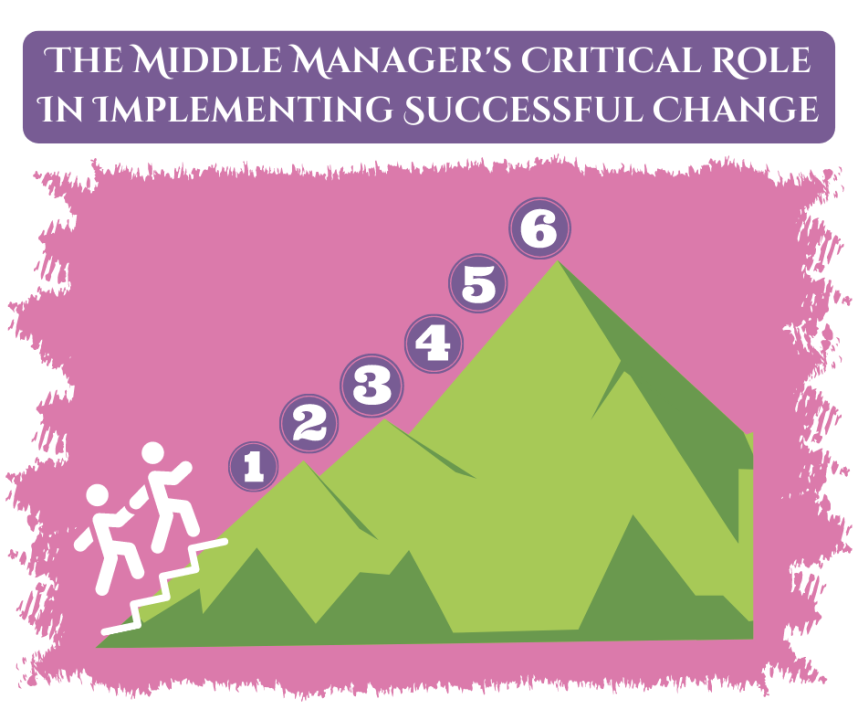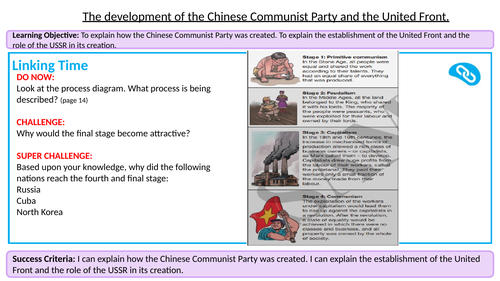Why Middle Managers Are Crucial For Company Success And Employee Well-being

Table of Contents
Middle Managers as the Bridge Between Leadership and Employees
Middle managers act as the vital bridge connecting high-level company strategy with the day-to-day work of individual teams. They are responsible for translating complex, often abstract, organizational goals into actionable plans that employees can understand and implement. This crucial translation process ensures everyone is working towards the same objectives with clarity and purpose. Their role in communication is paramount:
- Interpreting and disseminating top-level directives: Middle managers take complex strategic initiatives and break them down into manageable tasks and goals for their teams.
- Providing context and clarity to employees: They provide the "why" behind decisions, helping employees understand the bigger picture and feel more engaged in their work.
- Facilitating two-way communication between leadership and teams: They serve as a conduit for feedback, relaying employee concerns and suggestions to upper management while simultaneously sharing updates and insights from leadership with their teams.
- Addressing employee concerns and feedback: They create a safe space for employees to voice their concerns, fostering trust and open communication within the team.
Boosting Team Performance and Productivity through Effective Middle Management
Strong middle managers are not just supervisors; they are leaders who actively contribute to team performance and productivity. Their ability to motivate, mentor, and support their teams is a key driver of success. Effective middle management relies heavily on:
- Setting clear goals and expectations: Defining measurable objectives ensures everyone is working towards the same targets, minimizing confusion and maximizing efficiency.
- Providing regular feedback and coaching: Consistent feedback helps employees improve their performance and grow professionally. Coaching provides guidance and support, helping team members overcome challenges.
- Delegating tasks effectively: Empowering team members by delegating tasks appropriately boosts morale and develops individual skills.
- Recognizing and rewarding accomplishments: Celebrating successes fosters a positive and motivating work environment. Acknowledging achievements strengthens team cohesion and boosts individual confidence.
- Addressing performance issues constructively: Addressing underperformance proactively through coaching and support is crucial for improving individual and team performance.
Cultivating a Positive Work Environment and Employee Well-being
Middle managers play a critical role in shaping the overall work environment and contributing directly to employee well-being. They are responsible for fostering a supportive and inclusive workplace culture where employees feel valued, respected, and engaged. This includes:
- Creating a positive team dynamic: Building strong relationships and fostering collaboration among team members improves communication and morale.
- Promoting open communication and feedback: Encouraging open dialogue ensures concerns are addressed promptly and fosters a sense of trust.
- Addressing employee concerns and needs: Demonstrating empathy and actively addressing employee issues shows that their well-being is a priority.
- Supporting employee well-being initiatives: Middle managers can champion initiatives promoting work-life balance, mental health, and overall employee wellness.
- Fostering a culture of collaboration and respect: Creating a culture based on mutual respect and teamwork improves employee engagement and productivity.
The Impact of Poor Middle Management on Company Success and Employee Morale
The consequences of ineffective middle management can be devastating. Poor management practices lead to decreased productivity, high turnover, and significantly lower employee morale. Some common examples include:
- Micromanagement and lack of trust: Constant oversight stifles creativity and autonomy, leading to decreased motivation and engagement.
- Poor communication and lack of clarity: Unclear directives and poor communication result in confusion, errors, and missed deadlines.
- Ineffective performance management: Failing to provide regular feedback, address performance issues, or recognize achievements leads to decreased morale and productivity.
- Lack of support and mentorship: Without guidance and support, employees struggle to reach their full potential, leading to frustration and burnout.
- High employee turnover: Poor management is a major contributor to high employee turnover rates, leading to increased recruitment costs and loss of institutional knowledge.
Investing in Middle Management Development for Long-Term Success
Investing in the development of middle managers is not just a cost; it's a strategic investment in the long-term success of the company. Providing training and development opportunities is critical for creating effective leadership at all levels:
- Leadership training programs: Equipping middle managers with effective leadership skills enhances their ability to motivate, guide, and support their teams.
- Communication skills workshops: Improving communication skills ensures clear, concise, and effective communication within teams and across departments.
- Performance management training: Training in performance management techniques equips managers to provide constructive feedback, address performance issues, and recognize achievements effectively.
- Mentorship programs: Pairing experienced managers with less experienced ones provides guidance, support, and valuable learning opportunities.
- Regular performance reviews and feedback: Providing regular feedback to middle managers helps them identify areas for improvement and strengthens their leadership skills.
Conclusion
In summary, middle managers are not just cogs in the machine; they are the essential connecting tissue that binds leadership vision to employee execution and well-being. Their effectiveness directly impacts company success, team performance, and employee morale. Investing in middle management development—through training, mentorship, and ongoing support—is crucial for building a high-performing, engaged workforce. Invest in your middle management team today. Effective middle managers are crucial for your company’s success and employee well-being. Learn more about developing your middle management talent and unlock the full potential of your workforce.

Featured Posts
-
 154 Albums Later Willie Nelson Faces Family Conflict
Apr 29, 2025
154 Albums Later Willie Nelson Faces Family Conflict
Apr 29, 2025 -
 Merd Fn Abwzby Afttahh Alrsmy 19 Nwfmbr
Apr 29, 2025
Merd Fn Abwzby Afttahh Alrsmy 19 Nwfmbr
Apr 29, 2025 -
 Fealyat Fn Abwzby Tbda 19 Nwfmbr
Apr 29, 2025
Fealyat Fn Abwzby Tbda 19 Nwfmbr
Apr 29, 2025 -
 Understanding The Ccp United Fronts Activities In Minnesota
Apr 29, 2025
Understanding The Ccp United Fronts Activities In Minnesota
Apr 29, 2025 -
 Chargers To Kick Off 2025 Season In Brazil With Justin Herbert
Apr 29, 2025
Chargers To Kick Off 2025 Season In Brazil With Justin Herbert
Apr 29, 2025
Latest Posts
-
 John Wick 5 Plot Speculation And The Future Of The Franchise
May 12, 2025
John Wick 5 Plot Speculation And The Future Of The Franchise
May 12, 2025 -
 Keanu Reeves John Wick 5 Everything We Know So Far
May 12, 2025
Keanu Reeves John Wick 5 Everything We Know So Far
May 12, 2025 -
 Unraveling The Mystery How Many Times Did John Wick Truly Appear
May 12, 2025
Unraveling The Mystery How Many Times Did John Wick Truly Appear
May 12, 2025 -
 John Wicks Single Canonical Appearance Fact Or Fiction
May 12, 2025
John Wicks Single Canonical Appearance Fact Or Fiction
May 12, 2025 -
 John Wick Experience Opens In Las Vegas What To Expect
May 12, 2025
John Wick Experience Opens In Las Vegas What To Expect
May 12, 2025
